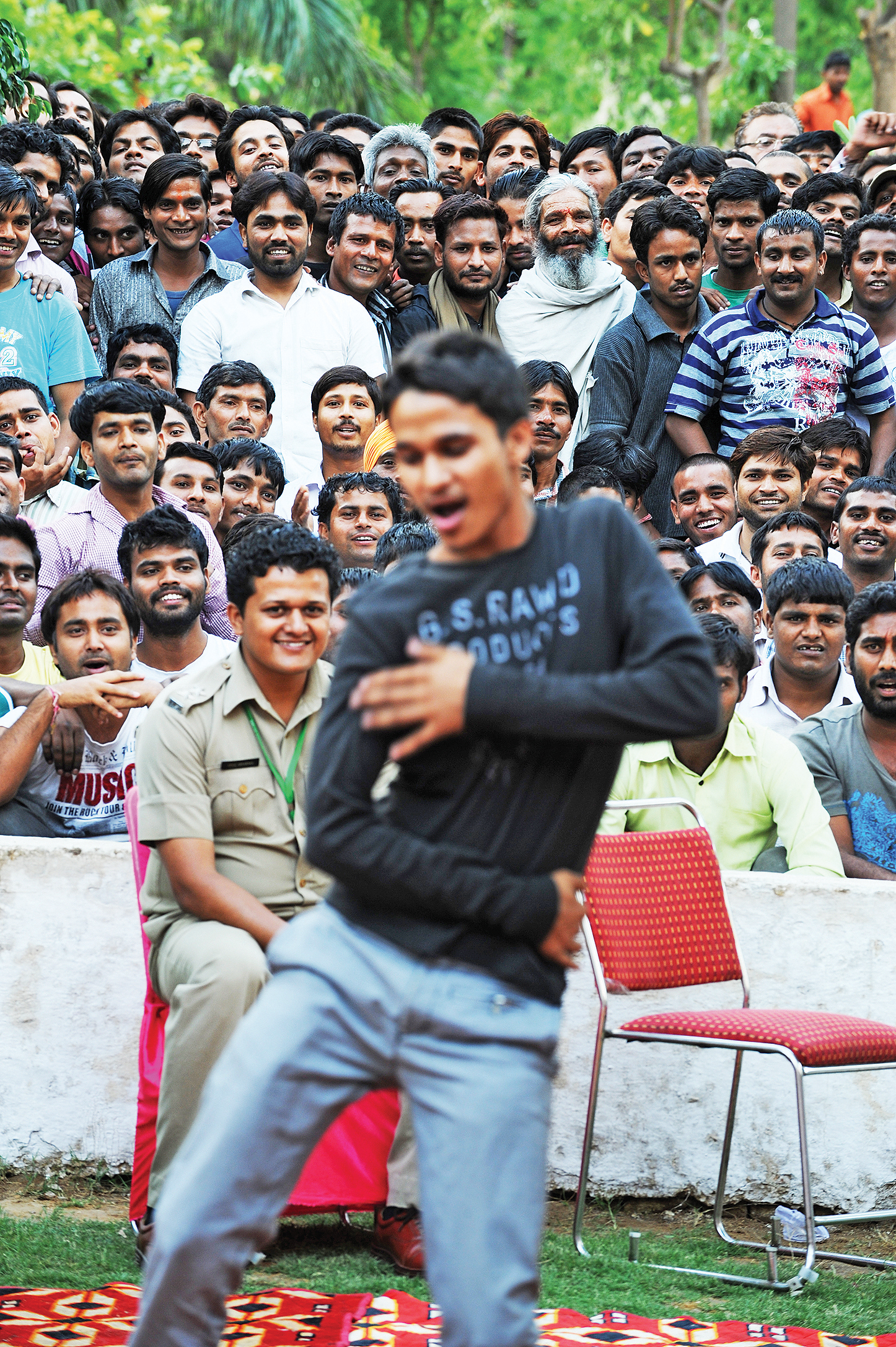Trained and talented inmates will showcase their musical skills this Independence Day. Tihar Idol, a reality show, is also ready to be broadcast
During Independence Day, no outsiders are allowed into Tihar Jail. But the inmates don’t need any VIP to deliver long-winded speeches. They have their own unique celebration, as prisoners who have been given training in music themselves take the stage to belt out some songs, complete with instrumental backing.
The performance is not amateurish, as they have been taught to sing, dance and play instruments by professionals. An NGO called Art Creation Cultural Society led by Naresh Baisla first entered Tihar in the year 2012 to help prisoners discover their hidden talents.
An official with Tihar jail, who did not wish to be named, said that every August 15, a standard format is followed. “Jail superintendents ensure Independence Day is celebrated as a big event. It’s an important time. Through this, a feeling of patriotism comes alive. It’s part of their
reformation”.
Each jail has a music room and people have been practising their patriotic songs. For security reasons, outsiders are not allowed. So prisoners alone get to perform and watch.
In the largest prison system in Asia, where almost 16,000 prisoners are confined, patriotism is perhaps a civilising and unifying factor. The inmates range from undertrials to convicted murderers and rapists to high profile businessmen. With cultural events taking place round the year, the official says, inmates “are always practising”.
About I-Day celebrations, he elaborates: “There will be patriotic songs. If someone wants to put up a drama, they do that. Everyone takes part and sweets are distributed.”
In the early 2000s, a team learning music at the YMCA went to celebrate Independence Day with inmates of Tihar jail. Inside, they walked past prisoners in their barracks, their eyes fixed on the outsiders. On stage, a few songs were sung; one ironic choice was Queen’s spine-tingling hit ‘I want to break free’.
Perhaps more than the prisoners, it was the visitors for whom the experience was an eye-opener. The practice was, however, discontinued almost seven years back because, according to YMCA programme department’s Phillip, “The management felt the organisation of the event was not right. Something happened and so it was decided to stop going.”
But music again started to play within prison walls, thanks to Baisla and his band of dedicated teachers.
The skills that they have been able to impart has led to something quite extraordinary — Tihar Idol. The theme borrowed from its US cousin — American Idol, of course — was filmed along the lines of a reality tv show for DD channel. The episodes are hour-long ones with both singing and dancing competitions, broadcast of which they hope will happen by September.
“We took about 2,000 auditions and then brought it down to 100, then to 60, then 40 and finally to 16. There were eight dancers and eight singers. And we had a whole set and the launch was done by Sonu Nigam in Jail No. 1, and many prominent names from Bollywood came to judge”, Baisla says.
The competition then led to the inevitable elimination process with three positions of first, second and third prize for both the singers and dancers.
“The people who enter jail —whether they may stay for 10 days or 10 years — society does not accept them,” says Baisla, when we asked him why he decided to enter prisons for teaching the arts. “The family could be affected in the smallest way like neighbours’ children stop playing with the children of convicts. When released, inmates find themselves jobless with no takers; they also become the first suspect for any crime taking place in the area. They don’t get a home on rent easily.”
He says three options lie in front of a released prisoner. The first, a path most commonly taken, is to become a repeat offender, which happens in 90% of cases. The second option, according to him, would be to move to another state and assume another name, starting life afresh. The third would be to give up on life and commit suicide.
“Before 2012, there were many suicides. I feel the reason it has come down is because of music, that has been imparted into their lives. This keeps them busy and music is therapy”, he says adding that it also works as a way to reform individuals and channel their energy in more positive directions. He has an interesting analogy: “Like a computer has a refresh button, likewise music has the same effect as that button in a person’s life.” The NGO does counselling to help reach that goal as well.
He gives an example of one convict who came back to prison a record 36 times. “But since 2013, when he left, he hasn’t re-offended, and there are many more such examples…We are trying to reform them.”
At least 400 prisoners have benefited from this programme, Baisla says, over the years. They were emboldened to set up a band called ‘Reform’. It consists of former inmates who have learnt music through the non-profit. They use their talent to perform at weddings and even gigs in 5-star hotels. Baisla adds proudly that the former inmates make a living out of this.
The released inhabitants also go back to prison to teach the present occupiers of the barracks. “Earlier we use to send teachers from outside but now the ones whom we taught do the job.” Not just here, even outside the realms of the prison system, they are able to use their knowledge and talent. “Recently we had a singing competition amongst senior lawyers of the Supreme Court and the former convicts trained them”, Baisla says.
For now, the coming week will bring festivities for the jail just as the country and its people outside the gates mark the country’s 72 years of Independence.





